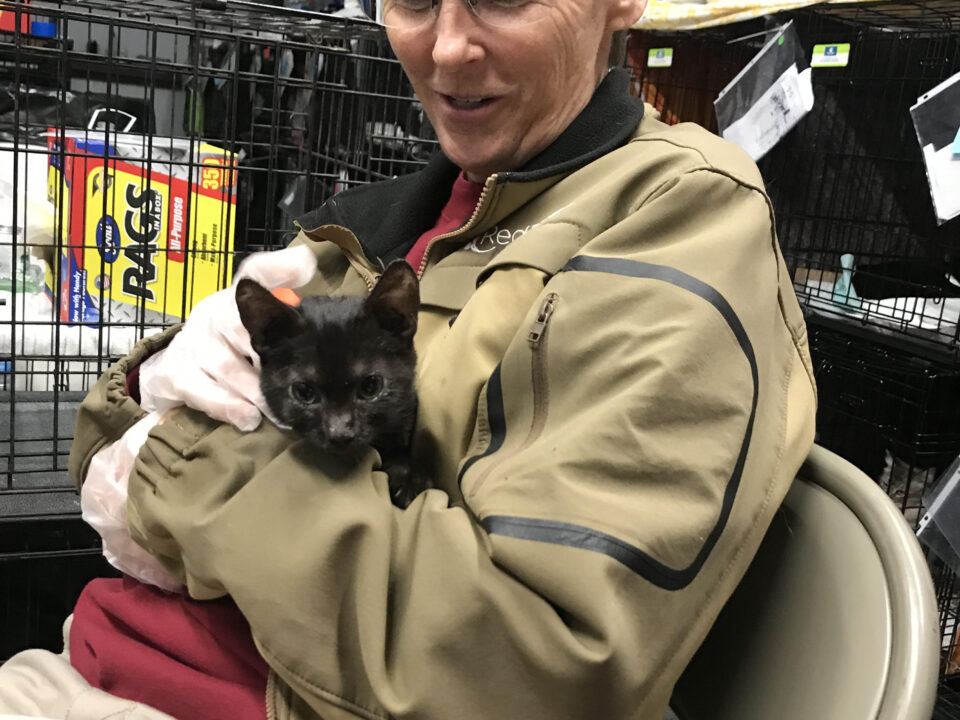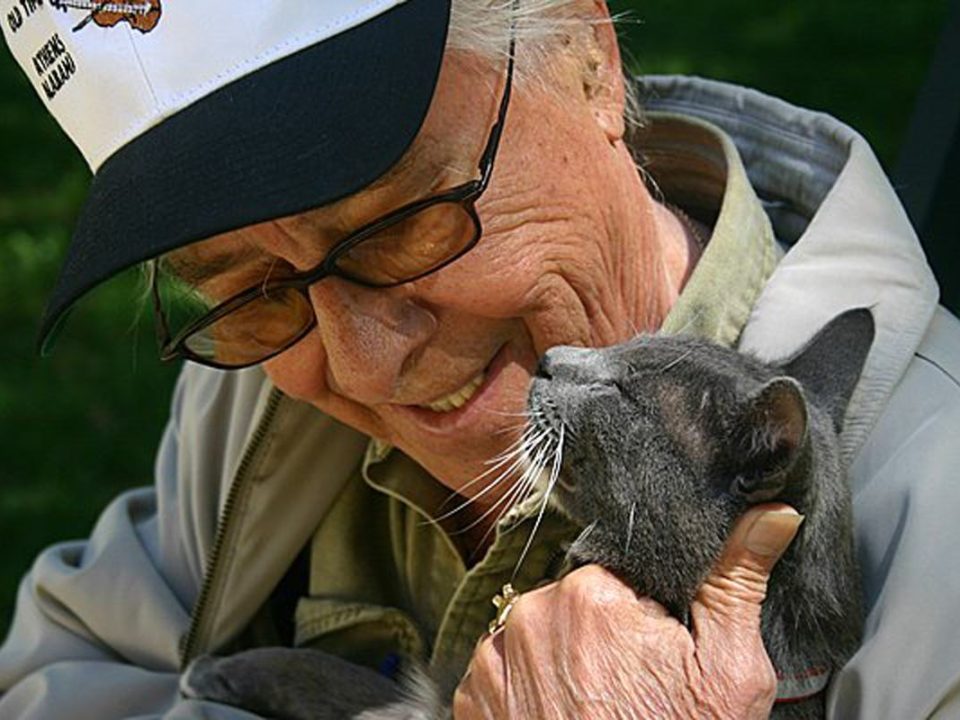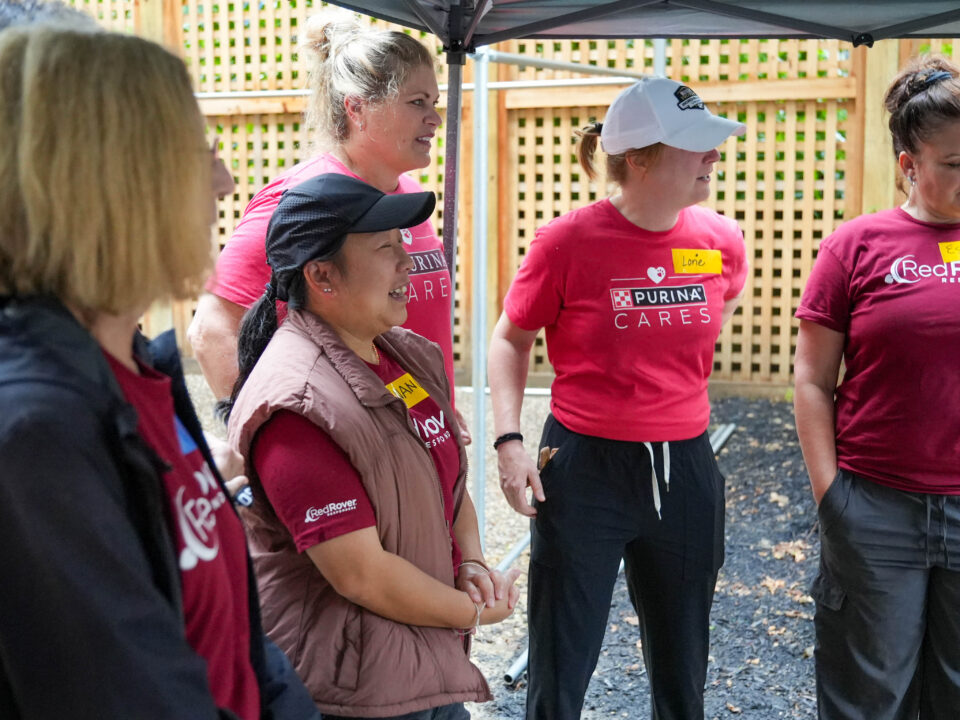Collaborating with compassion: A look back at Bennettsville
April 14th, 2022
By Helia Zarkhosh, Communications and Marketing Coordinator II
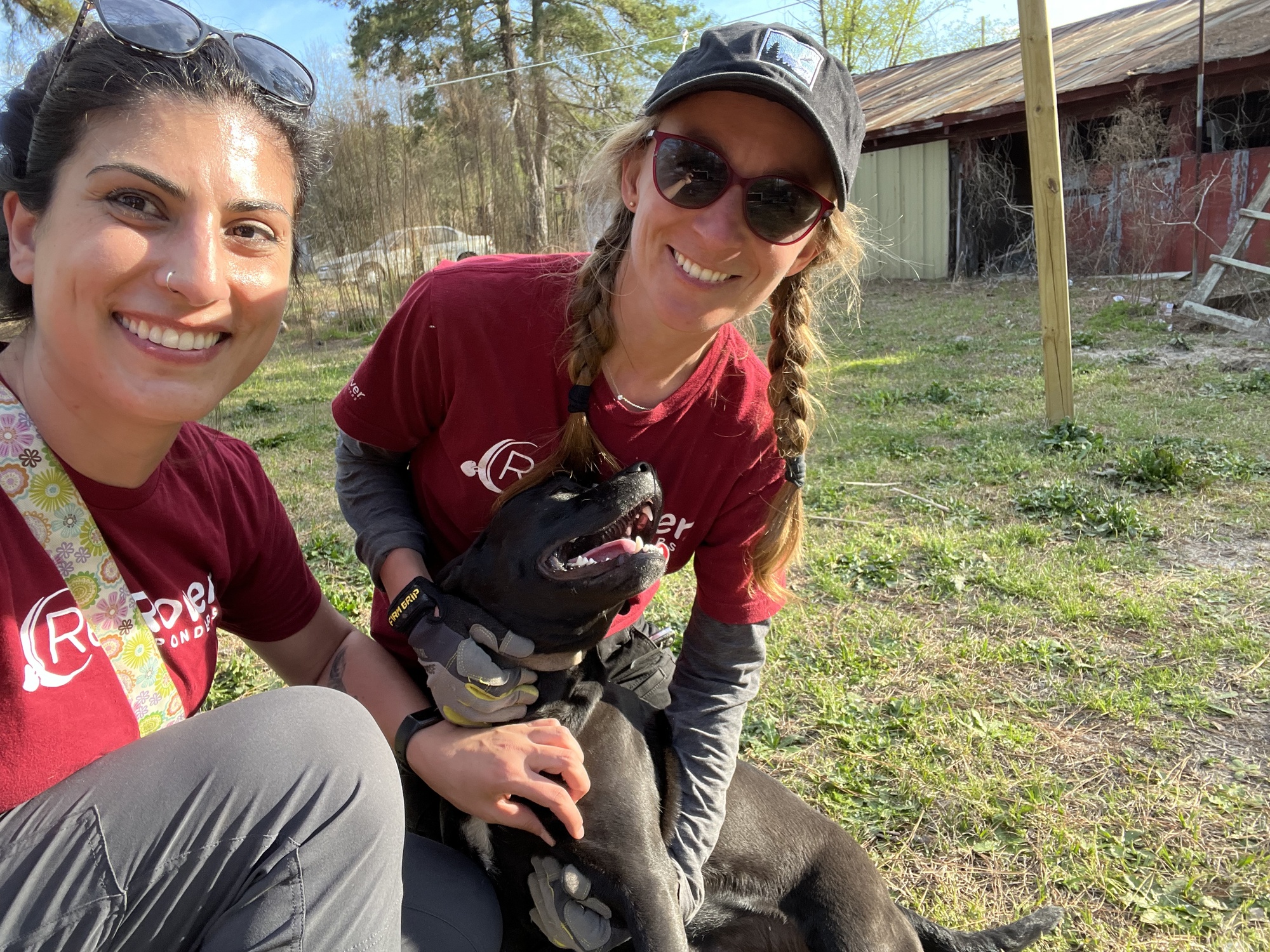
Helia (left) and Devon (right) with Maybelle
As I prepared to join Devon Krusko, RedRover Field Services and Community Programs Manager, on an Unchain Marlboro deployment, I began repeating a narrative to myself: Life for people and animals in Bennettsville, South Carolina, is different from mine or my pets’. What I would see on this trip might be difficult, upsetting, painful even. Plus, I would be leaving behind my own pets whom I rely on for comfort when I’m sad, which I would surely be feeling that week. I anticipated the emotional weight of what I’d encounter. “But you’ll get to help some animals,” I told myself. That, for me, makes any sadness worth it.
I realized quickly upon arriving in Bennettsville just how unfair that narrative (albeit unconscious or unintentional) actually was – both to myself and to the community here. In my mind, it seemed I’d equated “different” with “less than,” or even “bad.” Over the next week, my preconceived notions and unconscious judgments and biases would be challenged and undone.
Unchain Marlboro was created by the Humane Society of Marlboro County (HSMC) to improve the quality of life for dogs who live outside, as well as offer continued support and resources for their families in the form of free or discounted veterinary care, pet food, microchipping, and more. This program is only successful in executing its mission because of the trust HSMC staff have built within their community. And it’s because of that trust that the community welcomes RedRover’s support with open arms when HSMC calls on us to assist.
In addition to providing hands-on support as a trained RedRover Responders volunteer, my role on this deployment was to capture footage for future fundraising efforts, enabling us to help even more pets and their people. To that end, I spent a lot of time speaking with the families who had either been approached by HSMC outreach staff to participate in the program, or who had reached out for assistance on their own. One truth became immediately and undeniably clear from these interactions: Just like my pets, these animals are cherished and adored. Their humans even need them just as I need mine. So, why were they cared for so differently from the way I care for my animals? Like so many things in life, the answer to this is complicated and layered.
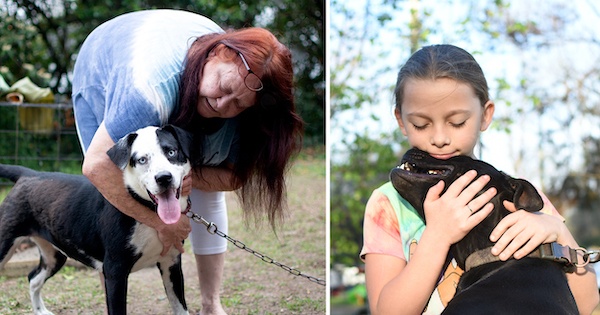
Anita and Girlfriend (left) | Jaelyn and Maybelle (right)
Economic disparity and cultural factors play a huge role. For the families I met, housing and caring for their pets in ways I was used to was not only financially out of reach, it was simply not the way of life here.
As Devon wrote in her blog, “Bennettsville, South Carolina, is a small, rural community with limited resources for both pets and people. There are cultural differences, a gap in information, and varying thoughts and beliefs surrounding animal welfare. Many families were raised with the notion that dogs, particularly larger ones, belong outside; some live in tiny homes with multiple people and multiple dogs who don’t get along; some have landlords who don’t allow dogs inside; others keep dogs for protection; and for many, a chain is the most affordable way to keep their pet safe from harm outside.”
Many residents, like a young mother named Jessica whose beloved family dog Maybelle was tethered outside, grappled with how to keep their dogs safe from dangers outdoors. “Maybelle is my baby,” Jessica told me, and I sensed how fierce her urge was to protect her baby from the busy road they live beside, especially since she had already escaped from the yard on multiple occasions.
Anita, whose best friend is Girlfriend, expressed concern for what might happen to her beloved pup if she got out and bothered neighbors who may not be kind toward her. Megan described the same concern, noting that six-month-old Sapphire couldn’t truly roam free in her yard for this reason. Taking into account the many factors in each situation, the safest, most affordable option was a chain or tether of some sort.
However, each person I spoke with explicitly stated they did not want their dog on a chain – the fact is, they simply couldn’t afford any type of enclosure. The ones provided by Unchain Marlboro cost HSMC at least $700 each, and it was only with the support of this program that an untethered life was possible.
What stands out to me most is that, despite any differences in understanding or approach to pet care, the collective focus for all of our volunteers was on the mission: if we can improve the quality of life for these animals and, by extension, their people, we’re going to do it. There was no place for anything but compassion and empathy towards those who were clearly caring for their animals to the best of their ability, particularly when these same people may have already been concerned about being judged by others. And the value of this approach extended beyond animal welfare. For instance, one resident asked that I not take photos or video of her yard, where trash was visible, because she was afraid of what people would think of her. After a conversation with Devon, I realized that some people simply can’t afford the cost of garbage disposal services – something I had never before considered.
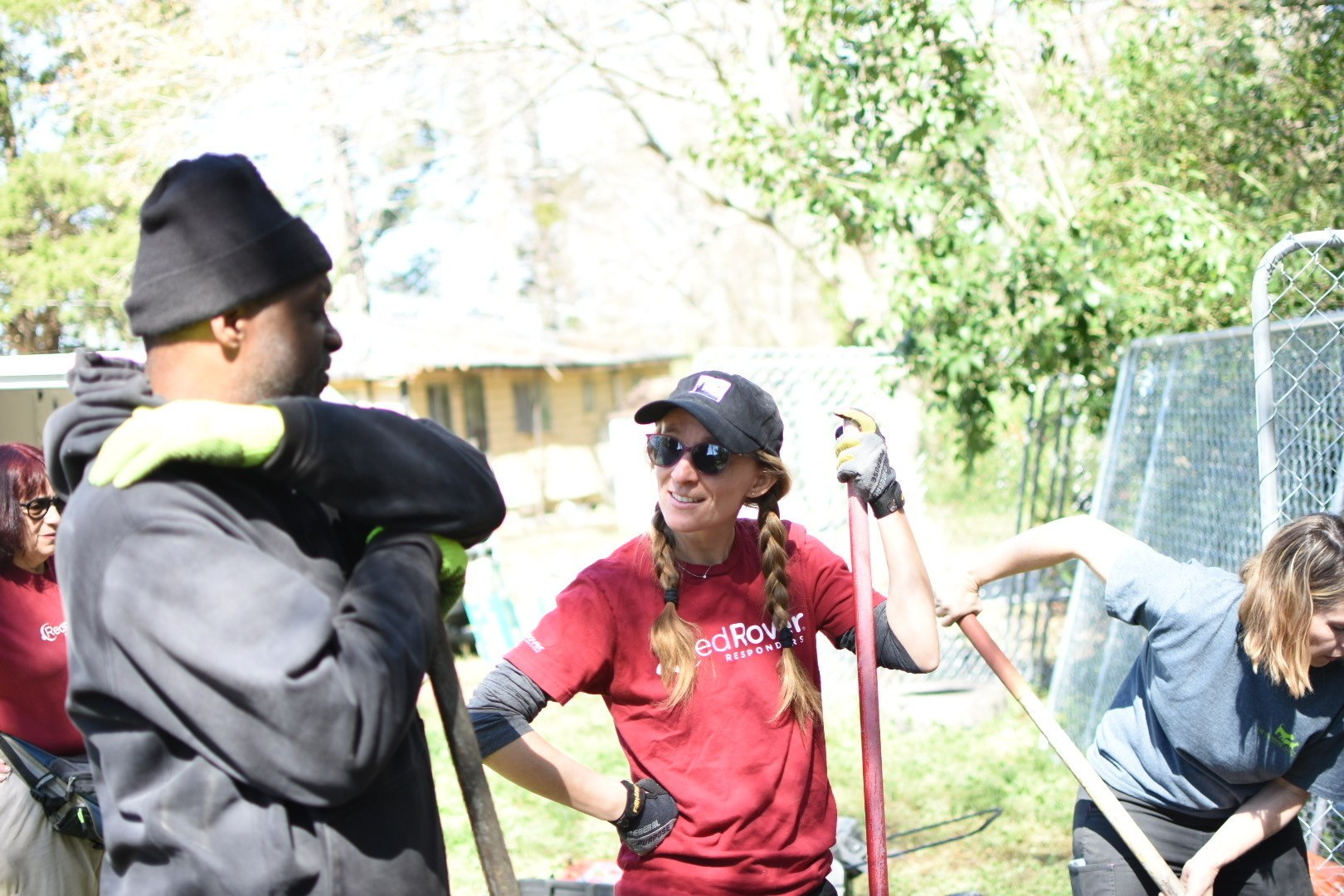
Devon Krusko speaks with Lacey, a community member who was provided with several enclosures through the Unchain Marlboro program
Understanding that people come from all different walks of life with their own set of experiences encourages receptivity to learning, and fosters a culture of respect that is essential for our RedRover Responders team to carry into every deployment. It allows us an opportunity to celebrate differences and the value they offer in terms of perspective- and knowledge-sharing, whether that be amongst our staff and volunteers, our partners, or the communities and individuals we serve. I witnessed this on deployment in the more abstract sense of the stories I collected from the community, and also in more tangible ways, like one volunteer teaching another how to operate a till; one Unchain Marlboro enclosure recipient learning about fencing and canopies while working alongside us the entire day as we cleared new space for his dogs; RedRover and HSMC volunteers and staff exchanging program and project ideas; and so, so much more.
Weeks later, as I move in and out of reflection of my time there, I’m brought to tears each time. In a word, this experience was powerful. Learning from and understanding backgrounds different from your own can be a transformative experience – especially when you realize the numerous common threads that unite you. This deployment offered me an opportunity to do just that by engaging with animal lovers in a community I likely wouldn’t have had a reason to visit outside of this program.
Perhaps as important as the animals we unchained, we all connected…with the HSMC staff, with the community, with the families we helped and whom I interviewed, with RedRover and HSMC volunteers, with Code Enforcement and Animal Control, with kids who proudly told us all about their pets, with clinic attendees who were so incredibly grateful beyond words to have the support and resources offered by this tiny, mighty shelter… This deployment, this Unchain Marlboro program, is about so much more than simply getting dogs off chains. Of course, that is the crux of the mission, and it is noble in and of itself. But the impact I experienced first-hand reaches far beyond untethering animals.
To see the faces of families truly light up as their dogs explored, zoomied, and played in their new space for the first time was like watching a bit of magic unfold. As excited as the dogs were, I could feel the same energy radiating off their humans. And we – and you! – helped make that happen.
If you’re interested in learning more about the RedRover Responders program and the type of work we do in the communities we serve, visit RedRover.org/Responders.
Ready to join us? Sign up to become a RedRover Responders volunteer through our free online training program at RedRover.org/JoinResponders.

